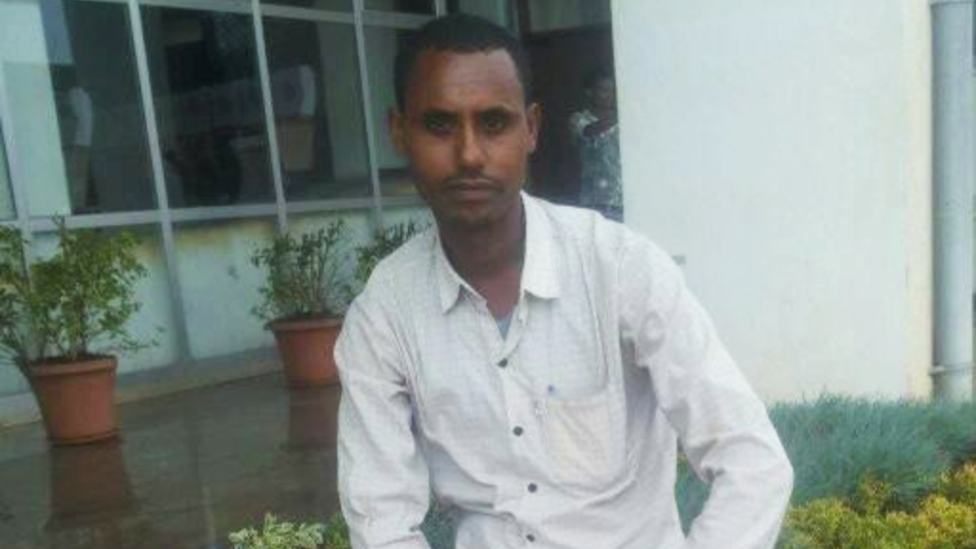Ethiopia election: Fears over new delay
- Published
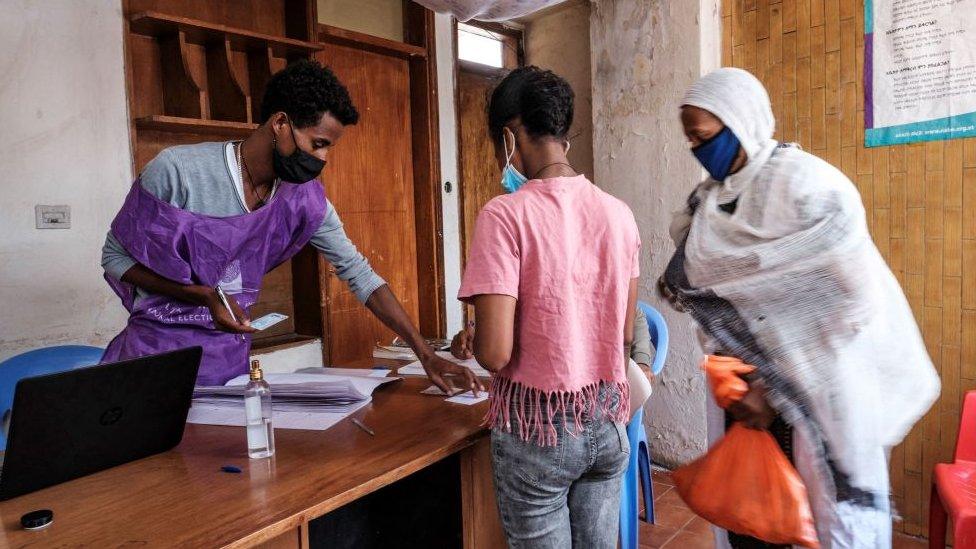
Some 36 million people have registered to vote - from an estimated population of 110 million
The impending postponement of Ethiopia's election has raised fears of further inflaming political tension in the country.
At a meeting on Saturday with officials from several political parties, Birtukan Mideksa, head of the electoral board, said there were still challenges with voter registration, training of electoral staff, and ballot papers.
She announced that the election will probably not be held on 5 June but instead delayed for two to three weeks, adding that political parties should send in their proposals.
The poll was initially to be held in August last year but was postponed as the Covid-19 pandemic raged across the world.
Why will the election be delayed again?
In a meeting organised by the electoral board, officials told party representatives of the logistical challenges it was facing in registering voters and distributing poll materials.
Some of the participants also said they were concerned that the federal government was grappling with multiple crises around the country and that the security forces might be too stretched to help oversee the voting exercise.
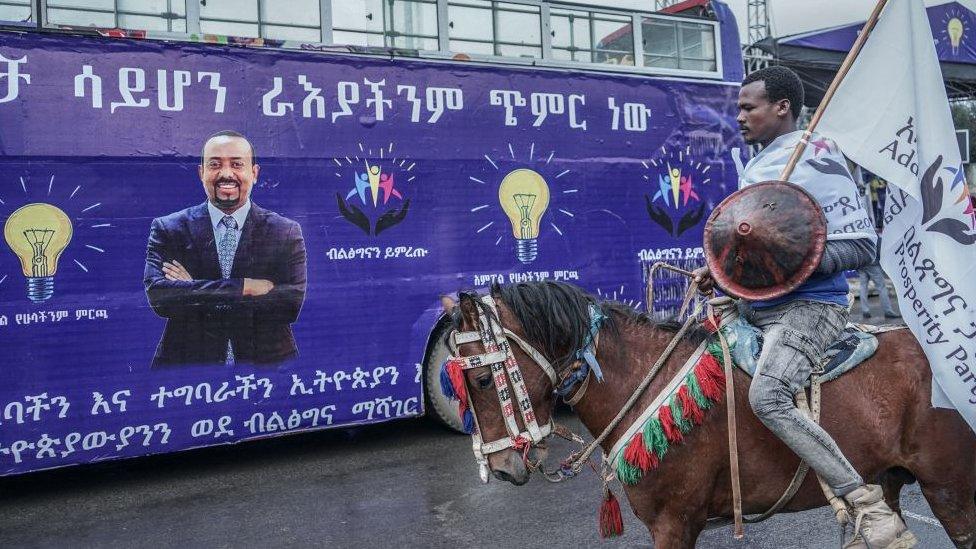
Prime Minister Abiy Ahmed has already started campaigning for his newly formed Prosperity Party
Ethnic conflict in several parts of Ethiopia has made it difficult to move voting equipment to several places across the country.
However, the rainy season which starts in June and intensifies in July and August was also a major concern at the meeting, with some officials saying that the postponement could make it difficult to vote, especially in rural areas.
Others suggested that the election should be moved to September - but that would create another political crisis as a new government is expected to be in office by then.
What has the reaction been?
There has not been a huge reaction to the proposed postponement, although some do not see how an extra two or three weeks will help the election board improve how the election is run.
And Prime Minister Abiy Ahmed has sought to allay any concerns. In a tweet, he said he backed the postponement, external but stressed that the election board "operated independently. I would like to assure all Ethiopians that we will do our very best to hold a better, free and fair election than previous years".
He said the elections would be held "in the coming short weeks" and that "contrary to speculations" voter registration had been good.
But some groups outside the country are pushing the government to prioritise holding a national dialogue instead of the election, saying that the crisis in the northern Tigray region and ethnic conflicts in other parts of the country had to be addressed first.
They are also urging the government to release political prisoners and focus on reconciling the country.
How is the poll related to the Tigray crisis?
The initial postponement of the election last August was one of the triggers for the ongoing conflict in the northern region.
Prime Minister Abiy Ahmed, who came into office in 2018 after his predecessor resigned following mass protests, said delaying the poll was necessary because of health measures that had to be put in place to curb the spread of coronavirus.
Tigray crisis: Why Sudan is a ‘second home’ to Ethiopian refugees
But the announcement angered the Tigray People's Liberation Front (TPLF), one of the main parties in the former governing coalition. Its leaders accused Mr Abiy of illegally extending his mandate and said he was an "illegitimate leader".
The TPLF went on to hold local elections in September in violation of the federal government's order.
Two months later its fighters attacked a base hosting federal troops in Tigray triggering a military offensive by the federal government.
The war, which is in its seventh month, has killed thousands and displaced many more.
Human rights organisations have also documented horrific attacks against civilians including executions and rape from both sides, including by Eritrean troops who are backing the federal government.
Aid organisations have also warned that food supplies were not reaching those most in need.
How many people have registered to vote?
At least 36 million voters had registered by last week's deadline, out of an estimated population of about 110 million. However, the exercise did not take place in conflict-hit Tigray region which will be not be taking part in the vote.
The number of registered voters is at least 10 million short of what the officials were targeting, but is similar to the number who registered for the 2015 election.
The published voter numbers have sparked another controversy about their veracity. Some are questioning the 15 million voters registered in Oromia region, where the main opposition political parties are boycotting the election because their leaders, like Jawar Mohammed, remain in prison.
Prime Minister Abiy's government has previously brushed off criticism about preparations for the elections.
In a statement it dismissed the European Union's decision not to send observers saying they were "neither essential nor necessary".
Related topics
- Published26 February 2021

- Published1 February 2021
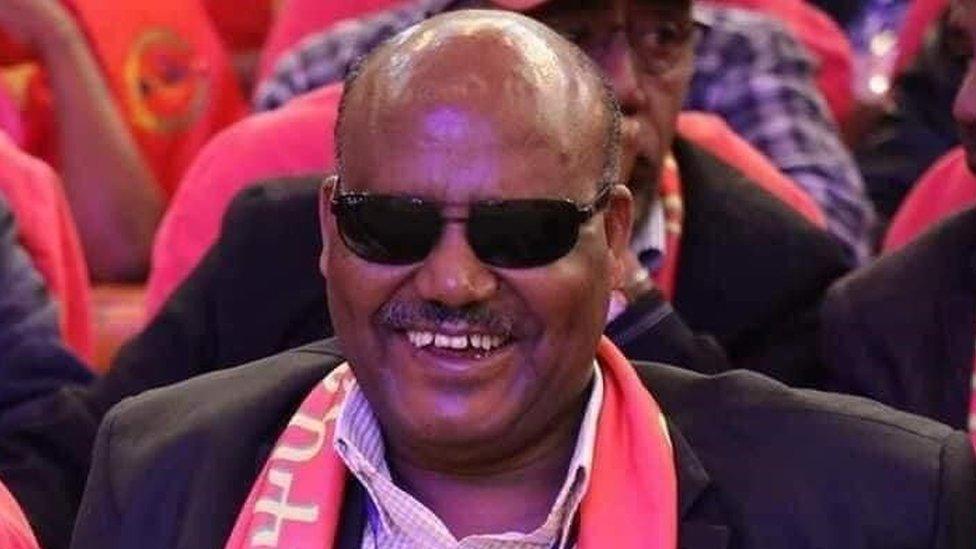
- Published12 February 2021
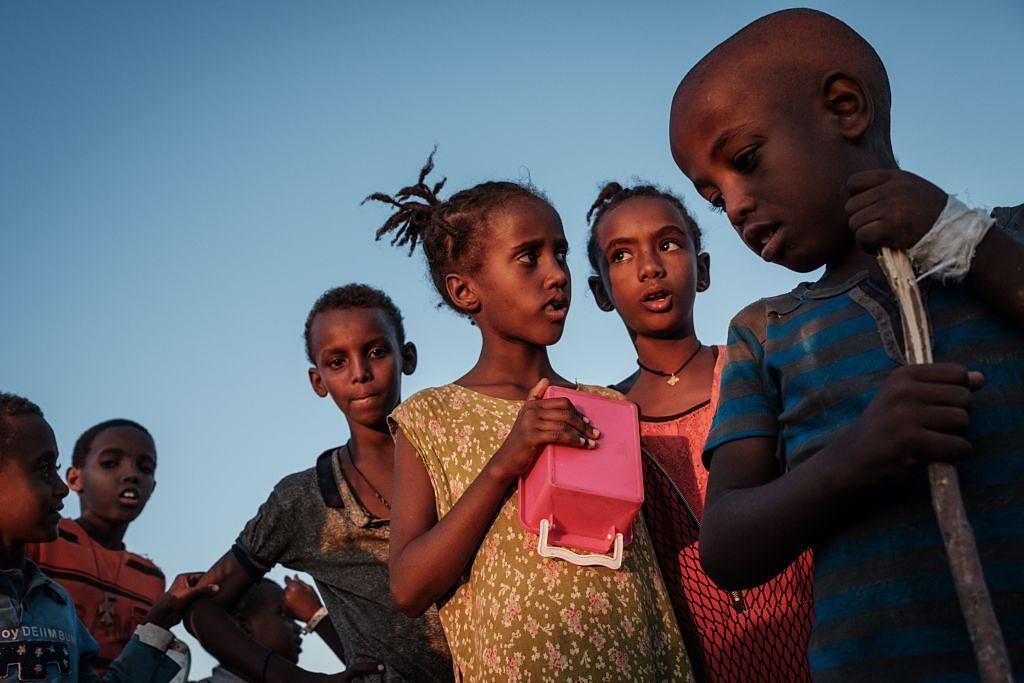
- Published16 January 2021
